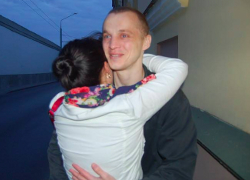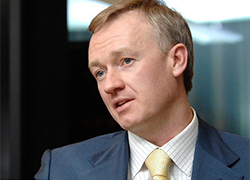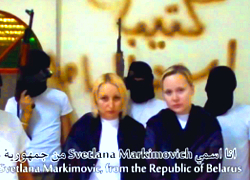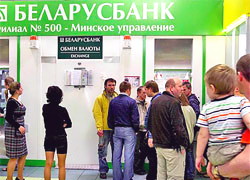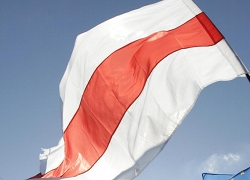Weißrusslands
Regierungschef hat den Chef des Kali-Weltmarktführers Uralkali in eine
Falle gelockt - jetzt sitzt der russische Top-Manager in einer Zelle des
Geheimdienstes KGB. Der Grund ist ein Preiskampf, den der Uralkali-Chef
angezettelt hat.
Der Weißrusse Michail Mjasnikowitsch, ein 63-Jähriger mit
schlohweißem Haar, hat schon viele Posten gehabt. Er war Minister für
kommunalen Wohnungsbau und Präsident der weißrussischen Akademie der
Wissenschaften. Drei Jahre dient er Präsident Alexander Lukaschenko
nun schon als Ministerpräsident und als gelegentlicher Blitzableiter
für Fehlleistungen der Regierung. Als Lockvogel hat Mjasnikowitsch in
all den Jahren nicht fungieren müssen, aber irgendwann ist ja immer das
erste Mal. Viel spricht dafür, dass das Treffen lediglich ein Vorwand war. Als es zu Ende war, nahmen Sicherheitskräfte den Manager am Flughafen Minsk zur Seite. Erst durchsuchten sie ihn nach Drogen, dann nahmen sie ihn in Haft. Seitdem sitzt Baumgertner in einer Zelle des weißrussischen Geheimdienstes KGB. Lukaschenkos Staatsfernsehen strahlte zur besten Sendezeit Aufnahmen von Baumgertner in Haft aus, ganz so, als sei Weißrusslands Staatssicherheit ein gefährlicher Spion ins Netz gegangen.
Aggressiverer Preiskrieg
Die Verhaftung ist der bisherige Höhepunkt einer Wirtschaftsfehde, die seit Wochen die Weltmärkte in Atem hält. Uralkali und der weißrussische Staatskonzern Belaruskali hatten lange Jahre Seite an Seite agiert. Seit 2005 bildeten die Unternehmen ein Kali-Kartell, verkauften ihre Produktion über eine gemeinsame Tochterfirma und setzten so höhere Preise durch. Auf beide Konzerne zusammen entfielen 2012 rund 42 Prozent der weltweiten Produktion von Mineraldünger. Das Kali-Geschäft ist einer der wichtigsten Devisenbringer für das chronisch klamme Weißrussland.
Vor einem Monat aber hatte Baumgertner überraschend einen Preiskrieg ausgerufen. Der Russe kündigte an, Uralkali werde seine Fördermenge dramatisch erhöhen. Für die Branche kommt das einer kleinen Revolution gleich: Das Kali-Geschäft wird weltweit dominiert von wenigen großen Konzernen, die bislang dazu neigten, sich gegenseitig nicht allzu scharfe Konkurrenz zu machen.
Als Baumgertner die Bombe platzen ließ, sorgte sie auch in Deutschland für Schäden. Innerhalb weniger Tage brach der Kurs des deutschen K+S-Konzerns um 40 Prozent ein. Weltweit verloren Kali-Produzenten 20 Milliarden Dollar Börsenwert.
Der Schwenk auf einen aggressiveren Kurs bei Uralkali ist eng verbunden mit dem Namen Suleiman Kerimow. Der Milliardär, dessen Vermögen Forbes zuletzt auf rund sieben Milliarden Euro taxierte, hat den Konzern 2010 gekauft. Kerimow ist weder dafür bekannt, geduldig, noch besonders zimperlich zu sein. Einer breiteren Öffentlichkeit war er als Sponsor des russischen Fußballclubs Anschi Machatschkala ein Begriff. Seit 2011 lockte er Stars wie Samuel Eto'o in den Nordkaukasus.
K+S Deutschland reagiert gelassen
Warum Uralkali den Preiskrieg angezettelt hat, ist nicht ganz klar. Analysten vermuten, entweder solle ein Konkurrent sturmreif geschossen werden, damit die Russen ihn übernehmen können. Womöglich dienen die Kampfpreise aber auch dazu, Neulinge von einem Einstieg in das lukrative Kali-Geschäft abzuschrecken. Der australisch-britische Rohstoffkonzern BHP Billiton will in Kanada neue Lagerstätten erschließen, die Chinesen in Laos. Experten schätzen, das Fördervolumen könnte bis 2015 im Vergleich zu 2010 um 40 Prozent steigen.
ANZEIGE
Minsk fürchtet nicht nur um die Gewinne von Belaruskali, mit denen die Regierung seit Jahren Haushaltslöcher stopft. Lukaschenko sucht auch seit Jahren nach einem ausländischen Käufer für den Konzern. Bislang hat Minsk bei den Verhandlungen mit potentiellen Investoren aus Russland oder Singapur stets Phantasiesummen aufgerufen. 2012 forderte Lukaschenko gar 32 Milliarden Dollar. Wenn Uralkali aber die Produktionsmenge erhöht, drückt das den Wert von Belaruskali.
Baumgertner habe Weißrussland Schaden in Höhe von rund hundert Millionen Dollar zugefügt, heißt es in der Anklage. Wird er verurteilt, drohen dem Manager drei bis zehn Jahre Haft. Dass die Staatsanwälte ohne den Segen von Weißrusslands Präsident agieren, gilt als ausgeschlossen. "In Weißrussland trifft ein einziger Mann alle Entscheidungen in Bezug auf Belaruskali, und das ist Lukaschenko", sagt ein Ex-Chef von Uralkali, Anatolij Lebedew. Die Moskauer Wirtschaftszeitung "Wedomosti" kommentiert treffend, Lukaschenko habe Baumgertner als "Geisel genommen im Kali-Krieg".
Von Benjamin Bidder, Moskau
Kilde: http://www.spiegel.de/wirtschaft/unternehmen/konkurrent-von-k-s-uralkali-chef-baumgertner-in-haft-a-919016.html

